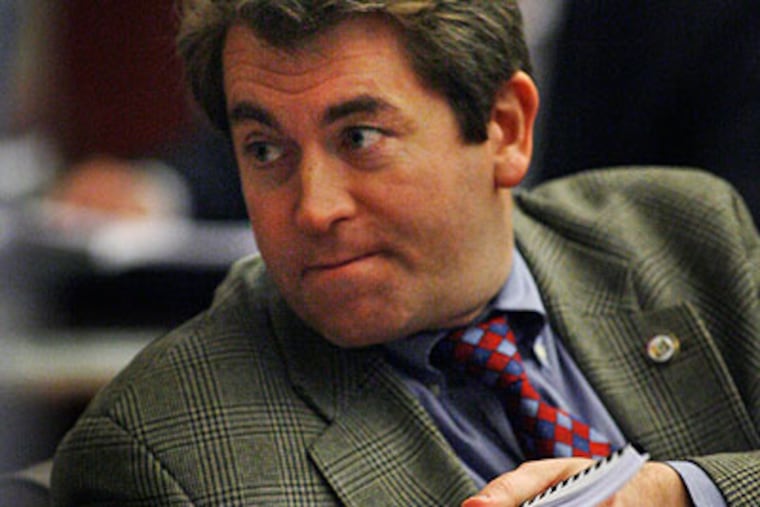
Recent events have shown that the crisis at the Philadelphia School District is more about oversight and stewardship than it is about dollars and cents.
Even before Friday's "kindergarten miracle" - whereby school officials announced that full-day kindergarten could be funded after all - I and other City Council members hesitated to simply throw more money at the district. So it's welcome news that Mayor Nutter has joined the calls for more information and scrutiny.
Now we must grapple with the following key issues:
Demographic shifts: The number of students attending district-run schools is falling fast and will continue to do so. Enrollment has declined from close to 200,000 in 2001-02 to only about 150,000 for 2011-12, while charter-school enrollment has increased dramatically. More than 70,000 classroom seats, or about 35 percent, are vacant, and some schools are down to 40 percent capacity - even as the district continues to shoulder 100 percent of the costs of maintaining them. And it seems clear that the future of publicly supported education in Philadelphia will involve a range of providers, including charter schools and perhaps private schools paid with vouchers.
The district must align its budget and assets with this reality, cutting costs as enrollment declines. Consolidating and closing schools is hard, but we don't have the luxury of maintaining half-empty facilities. Under similar pressures, Philadelphia's parochial schools have been downsizing for years - a gut-wrenching process, but one needed to preserve resources for those still in the system. The city can help the district plan and implement such downsizing.
Fiscal oversight: The district's spending habits raise serious questions about its fiscal oversight and governance.
How, for instance, could the School Reform Commission adopt an interim budget that slashes early-childhood education but increases the communications budget by almost half a million dollars? The size of the district's communications staff has grown from 16 to 20 over the past two years, compared with a city communications staff of just four.
And why have the district's executive positions increased by 85 percent over the past 10 years, even as it lost 25 percent of its students and reduced instructional positions by 16 percent?
Also troubling is the apparent lack of long-term fiscal planning, which has made budget "crises" out of predictable events, such as state budget cuts and the end of federal stimulus funding.
To correct these problems, the district needs additional oversight measures - such as, for instance, five-year spending plans approved by Council.
Informed decisions: When the district presented its budget to Council, we requested comparisons of the efficacy of programs the district proposed to cut and those it planned to keep. The district hasn't been able to provide that, raising questions about how it's allocating scarce resources.
For example, data indicate that many accelerated schools run by outside groups are achieving excellent results for students at risk of dropping out. But the district proposes to eliminate them and replace them with unproven district-managed programs.
The budget the SRC presented to Council seemed designed more for sowing fear among parents and advocates than for making responsible decisions. Before it gives more money to the district, Council has to be assured that it will go to programs that boost student achievement.
Preventing tax increases: I do not accept the premise that, with the combined $6.5 billion budgets of the School District and the city, we cannot find the resources to fund educational initiatives that work without raising taxes.
The district asked City Council to provide up to $110 million in funding, including $25 million for full-day kindergarten and $24 million for student transit passes. With the district now restoring those two programs, that leaves $61 million in outstanding needs.
The mayor can generate $6 million of that by increasing parking fees, leaving $55 million still needed. At least $10 million in savings can be found in the district's budget (including through significant reductions in the communications staff), shrinking the gap to $45 million. Council, meanwhile, has identified $15 million in potential savings in the city's budget, while the city's proposed year-end surplus of $50 million is far greater than necessary.
So, once the district has shown that it has eliminated waste and is restoring proven programs - including early-childhood education and accelerated schools - we can provide the needed $45 million without raising taxes. This should be in the form of a one-time "accountability grant" whose use is determined by the city, as Councilman Darrell L. Clarke has proposed.
It's time to reset the terms of the conversation among the city, its citizens, and the School District. We can no longer be held hostage by threats of disruptive cuts to proven programs, nor can we wring our hands and say we have no control over the district. It's time to get to work.